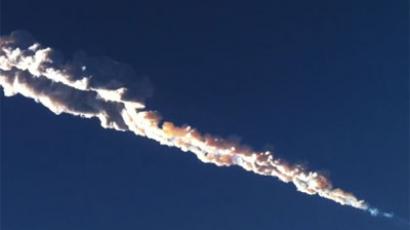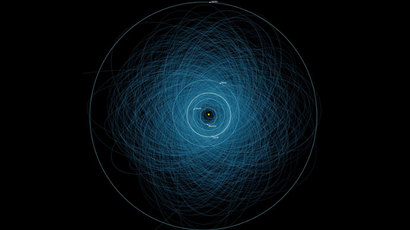Fireball in Russia’s Far East puzzles sky-watchers (VIDEO)
Witnesses in Russia’s Far East were astounded to see a spectacular burning object break up in the sky near Vladivostok. Though bloggers hailed it as a “meteor,” scientists are skeptical.
Photos and videos of the object posted online have provoked a debate on Russian social networks, with various ideas offered for what it might be.
“I was sitting in my car. I did not start taking pictures immediately – first I did not pay attention. It was flying soundless,” said one Internet user, who posted several photos of the event.
Witnesses said the early morning sky over Russky Island, across Vladivostok Bay, was lit up by a fireball, which later turned into a flaming line that remained in the sky for an hour and a half.
Some Russian media reported the sightings as a “meteor,” saying it was some 15 kilometers above the ground.
Other people speculated that the object could be a plane, an unmanned aircraft, a space craft or a distress flare.
Russian astronomer Vladimir Surdin linked the sighting to the launch of a Zenit 3SLB rocket from the Baikonur Space Center in Kazakhstan on Sunday.
“The photos show that this was an artificial object,” Surdin, of the Stenberg Astronomical Institute in Moscow, said. “It was moving from west to east and was witnessed some 20 minutes after the launch.”
Speculation that the object could have been a meteor was heightened because of the global media attention attracted by a meteor that exploded near Chelyabinsk, in Russia’s Urals region, in February. On that occasion, the impact wave damaged several buildings and blew out thousands of windows amid frigid winter weather. One of the fragments that struck near Chebarkul left a crater six meters in diameter.














